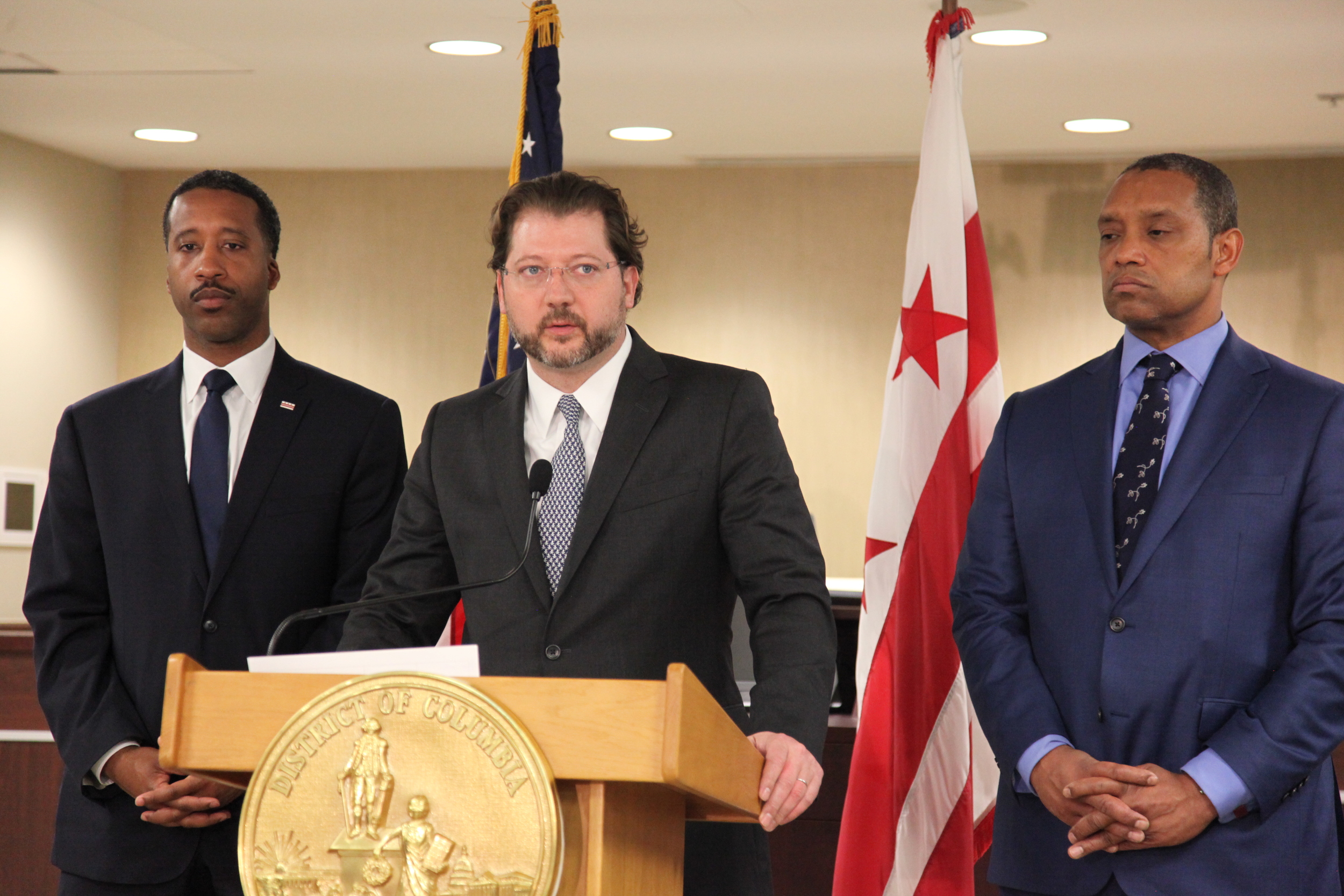by Emily Crockett, RH Reality Check, May 8, 2015
A group of anti-choice organizations released a joint statement this week that, to many observers, seemed like a vow to commit civil disobedience and violate the District of Columbia’s new Reproductive Health Non-Discrimination Act (RHNDA).
It’s not clear, however, if these groups’ planned “resistance” would actually break the law, or whether their objections to the law have any grounding in reality.
“The statement from Alliance Defending Freedom and other groups shows that they still have not taken time to read or understand my legislation,” D.C. Councilmember David Grosso, who sponsored the reproductive health bill, told RH Reality Check via email.
The statement, signed by representatives of Americans United for Life, Susan B. Anthony List, March for Life, Concerned Women for America, Alliance Defending Freedom, and the Southern Baptist Ethics and Religious Liberty Commission, pledged to “vigorously resist” alleged violations to their First Amendment rights under the new law.
The pledge comes on the heels of action by congressional Republicans to try, unsuccessfully for now, to block the new law. A resolution of disapproval of RHNDA failed to pass both the House and the Senate before a 30-day deadline, but Congress could still try to block it using the budget appropriations process.
“It is appalling that these organizations have sought congressional interference in our local legislative process and now claim an intention to disobey the law based on their own ignorance about what the Reproductive Health Non-Discrimination Amendment Act does and does not do,” Grosso said.
The Heritage Foundation’s Daily Signal website released the statement along with a report claiming that the groups are “putting themselves at risk of violating the law.”
It would in fact violate the law if the groups wanted to fire women for having an out-of-wedlock pregnancy, or fire men whose wives use birth control. The RHNDA amends D.C.’s Human Rights Act to protect employees from discrimination based on their, or their dependents’, personal reproductive health care choices for which some religious conservative employers have been known to fire women.
But if this is the anti-choice groups’ intent, it’s not at all clear from their statement. Instead, the groups appear to be using common misconceptions about what the bill actually does to support their arguments that the bill violates the religious freedom of employers.
“They claim they will not obey the D.C. Human Rights Act, yet their uninformed stance actually means they will be taking actions completely within the law,” Grosso said.
The anti-choice groups’ statement claims that RHNDA is “aimed squarely” at the organizations’ freedoms to “draw our workforces from among those who share our foundational commitment to the sanctity of human life” and to “purchase and provide employee health plans that comport with our pro-life beliefs.”
“Despite the enactment of this unjust law, we will continue to hire employees who share our commitment to the dignity of every member of the human family,” the statement concludes. “We will not abandon the purpose of our organizations in order to comply with this illegal and unjust law. We will vigorously resist any effort under RHNDA to violate our constitutionally protected fundamental rights.”
If all these groups want to do is hire people who share their views, or decline to provide comprehensive insurance that covers contraception and abortion, it doesn’t appear that RHNDA prohibits them from doing that.
The Supreme Court’s Hobby Lobby decision, as much as it rankled reproductive rights supporters and many D.C. Council members, is still the law of the land. Council members and aides have repeatedly said that nothing in the bill deals with insurance, and the bill now contains language clarifying that point.
That clarifying language is temporary, which the anti-choice groups objected to. But D.C. Council members plan to make that clarification permanent, even though some have argued that it would be redundant to do so.
As for the groups’ concerns about being able to hire people who share a “commitment” to their values, the law’s supporters say that groups can hire who they want, and that the purpose of the law is to prohibit firing an employee for their health-care choices.
“This is about ensuring that workers can make their own health decisions without their bosses’ intrusion, whether that is to initiate or terminate a pregnancy, whether that is taking birth control or in-vitro fertility treatments,” Grosso said.
Religious groups might argue that an employee’s abortion or use of birth control demonstrates a lack of “commitment” to their values, but that’s where the new law draws the line.
It’s possible, for instance, for a person to strongly identify as “pro-life” and Catholic but still use birth control funded by private insurance, or to have a daughter who does. Nothing seems to prohibit a group from refusing to hire someone who says they are pro-choice.
“If Concerned Women of America and the other groups are asking individual job applicants whether they use birth control, have had an abortion in the past, or have used assistive reproductive technologies, then they will be clearly violating the law, and doing so in a really despicable manner,” Grosso said.
He added that those employers are “well within their rights to evaluate a job applicant’s ability to execute the functions of the advertised position and seek employees who agree with the organizational mission.”







